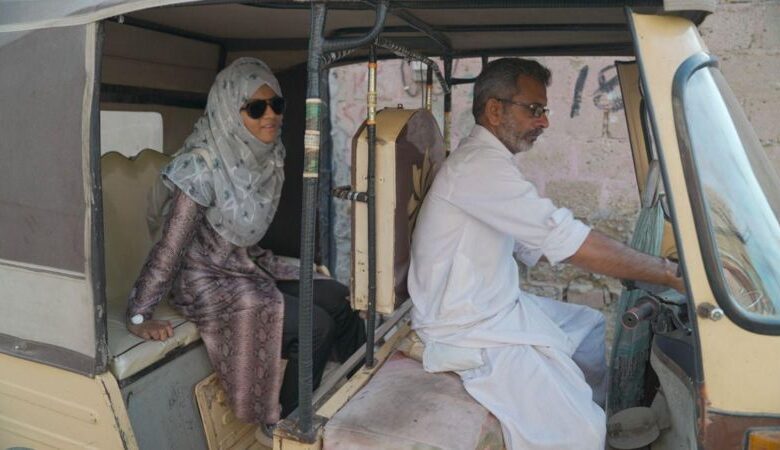Mehwish Aftab – Making Marks in Fencing

Inspiring Change Through Fencing
In a bid to assist her father, 18-year-old Mehwish Aftab found her calling in fencing. The sport not only provides her with a substantial income but also fuels her ambition of clinching a gold medal for Pakistan through dedication and hard work.
A Sport on the Rise
Fencing, an Olympic sport, remains relatively unpopular in Pakistan, particularly among women. However, the tides are turning as Pakistani girls increasingly express interest in this discipline.
Empowering Future Swordswomen
Mehwish Aftab has taken it upon herself to train aspiring female fencers at Karachi’s Badrul Hasan Sports Complex. Her dedication reflects a broader trend, as more and more Pakistani girls break free from stereotypes and embrace the sport.
Surprising Enthusiasm
Muhammad Taqi, Secretary General of the Sindh Fencing Association, notes that the sport is witnessing a surge in popularity among Pakistani girls. During selection processes, girls have consistently outnumbered boys, challenging conventional expectations.
“Girls are increasingly drawn to swordsmanship,” revealed Muhammad Taqi, the Secretary General of the Sindh Fencing Association, during an interview with the BBC. He reminisced about 2015, when seminars and workshops were organized in various schools to introduce this sport. He expressed his surprise at the overwhelming participation of girls, saying, “I assumed there would be more boys, but to my astonishment, during the selection process, we had 50 girls and only 20 boys.”
Mehwish Aftab, recalling her introduction to fencing during a camp at her school, shared her sentiment, stating, “I felt like this sport was tailor-made for me. However, the initial cost was quite prohibitive.”
Sports Bring Courage in Women
“Sports instill courage in girls,” emphasizes Mohammad Taqi. However, he acknowledges that this particular sport is neither simple nor inexpensive.
Taqi sheds light on the challenges of promoting fencing, citing minimal governmental support. He likens the assistance received to “a drop in the ocean,” stating, “The government of Pakistan provides minimal support. While the Sindh government occasionally offers some funding, it can only organize one or two events with it.”
Furthermore, he highlights the scarcity of essential protective equipment for the sport within Pakistan.
Mehwish echoes this sentiment, lamenting, “Equipment is so scarce that I have to split the training sessions between girls, as we lack the necessary gear. This leads to significant time wastage.”
After dedicating her day to training aspiring swordswomen, Mehwish returns home to assist her mother with household chores, balancing her responsibilities alongside her passion for fencing. She hails from a family of six, and her father, who drives a rickshaw, goes the extra mile, dropping her off and picking her up daily despite the distance.
Arooba Zafar, a recent fencing enthusiast, appreciates having a female trainer like Mehwish, as it fosters a comfortable learning environment. She reflects, “Mahwish teaches us with empathy and guidance. If we had a male trainer, it might not feel as comfortable.”
Addressing the physical demands of fencing, Arooba mentions, “When I started, they told me that weight management is crucial because fencing involves quick footwork. Excess weight can lead to fatigue and discomfort.”
Mehwish aims to encourage other girls to participate in sports, asserting that it imparts courage and strength to face life’s challenges.
Muhammad Taqi fervently appeals for governmental support, emphasizing the need for technical equipment, much of which must be imported, and the rising costs due to the appreciation of the dollar. He implores the government to procure necessary equipment from abroad, citing the ample budgets of other sports boards that could be allocated to fencing.
Mehwish concludes with her and her father’s dream of representing Pakistan on the international stage and clinching a gold medal. She notes that while many girls have competed internationally, none have secured a gold medal. Her aspiration is to break that barrier and bring home the coveted gold medal for Pakistan.
Overcoming Barriers
Mehwish Aftab’s journey into fencing wasn’t without hurdles. The initial expenses posed a significant challenge, but her determination and passion ultimately paved the way for her success.






